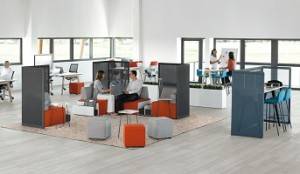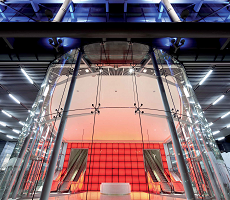April 30, 2014
CoreNet issues phase one of road-map to zero energy buildings
 CoreNet Global and the Rocky Mountain Institute have issued new guidance that lays out a framework for corporations to better manage their energy usage. According to Next Generation Energy Management, corporations have made progress in energy management and performance since 2007 when CoreNet Global and RMI first collaborated on this topic. Over two-thirds of corporations now have a sustainability agenda and staff as well as energy management plans, and nearly half have dedicated energy managers, a position that was only just emerging in 2007. However, research indicates that in many cases, these efforts have plateaued, so the new report is designed as Phase One of a road map toward the goal of net-zero buildings, in which buildings use the same or less energy than they generate through the use of renewables such as solar and wind power. (more…)
CoreNet Global and the Rocky Mountain Institute have issued new guidance that lays out a framework for corporations to better manage their energy usage. According to Next Generation Energy Management, corporations have made progress in energy management and performance since 2007 when CoreNet Global and RMI first collaborated on this topic. Over two-thirds of corporations now have a sustainability agenda and staff as well as energy management plans, and nearly half have dedicated energy managers, a position that was only just emerging in 2007. However, research indicates that in many cases, these efforts have plateaued, so the new report is designed as Phase One of a road map toward the goal of net-zero buildings, in which buildings use the same or less energy than they generate through the use of renewables such as solar and wind power. (more…)






















April 10, 2014
A rail network carrying people on blurred lines into the future of work
by Mark Eltringham • Comment, Flexible working, Technology, Workplace design
(more…)